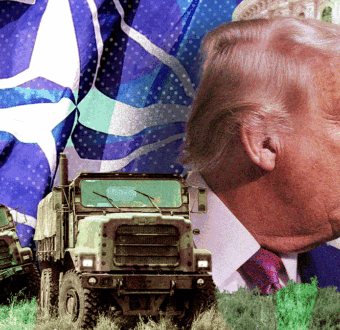EVENT: Understanding US Sanctions: Is it a Winning Policy?

Location: Zoom Webinar
Date: November 8, 2023
Time: 12:30 PM – 1:30 PM EST
Please join the Institute for Global Affairs (IGA), Assal Rad, and our panel of experts (Narges Bajoghli, Francisco R. Rodríguez, and So Jin Lee) on Wednesday, November 8, at 12:00 PM ET for a virtual conversation on the effectiveness of economic sanctions.
American misadventures in Iraq and Afghanistan revealed the limits of US military might and have pushed many Americans to call for policies of military restraint. Yet defense spending continues to increase as America’s military footprint expands. Meanwhile, US economic power is increasingly brought to bear on issues of foreign policy and national security.
Today, economic sanctions are often viewed as a powerful means to achieve policy objectives without resorting to war. IGA survey data shows that nearly two-thirds of Americans think sanctions are an effective foreign policy tool. But are sanctions an effective alternative to military force, or are they just another feature of Washington’s overreliance on coercion? As the academic literature shows, sanctions are often limited in their ability to achieve their stated objectives. And their consequences for civilians of targeted countries are, arguably, akin to war.
IGA nonresident fellow Assal Rad and our panel of experts (Narges Bajoghli, Francisco R. Rodríguez, and So Jin Lee) assess the efficacy of US sanctions and their impact on targeted countries and on the United States. They also address why today’s emerging multipolar world makes the need to understand US sanctions policy all the more urgent.
This conversation occured on Wednesday, November 8th, from 12:00 PM – 1:30 PM EST.
Panelists

Narges Bajoghli is Assistant Professor and co-director of the Rethinking Iran Initiative at Johns Hopkins University, School of Advanced International Studies. Trained as a political anthropologist, media anthropologist, and documentary filmmaker, Narges’ research deals with war, media, power, and resistance. She is the author of the book Iran Reframed: Anxieties of Power in the Islamic Republic (Stanford University Press, 2019).

Francisco R. Rodríguez is the Rice Family Professor of the Practice of International and Public Affairs at the University of Denver’s Josef Korbel School of International Studies. A native of Venezuela, he is also the founder of Oil for Venezuela, a non-profit organization focused on finding solutions to Venezuela’s humanitarian crisis. His forthcoming book is Scorched Earth: The Political Economy of Venezuela’s Collapse (2024).

So Jin Lee is a Stanton Nuclear Security Postdoctoral Fellow, an IGA nonresident fellow, and a former Grand Strategy, Security, and Statecraft Postdoctoral Fellow at the Harvard Kennedy School’s International Security Program and the Massachusetts Institute of Technology’s Security Studies Program. Her research focuses on economic statecraft, nuclear weapons, and interstate conflict with a regional focus on East Asia.
Moderator

Assal Rad is an IGA nonresident fellow and the former Research Director of the National Iranian American Council. She has written for such publications as Newsweek, Foreign Policy, and The National Interest, and has appeared as a contributor on BBC World, Al Jazeera, CNN, and NPR. She is also the author of The State of Resistance: Politics, Culture, and Identity in Modern Iran (Cambridge University Press, 2022).
This discussion includes references to the Eurasia Group Foundation, now known as the Institute for Global Affairs.
This post is part of Independent America, a research program led out by Jonathan Guyer, which seeks to explore how US foreign policy could better be tailored to new global realities and to the preferences of American voters.





Why Big Tech’s push into military AI matters